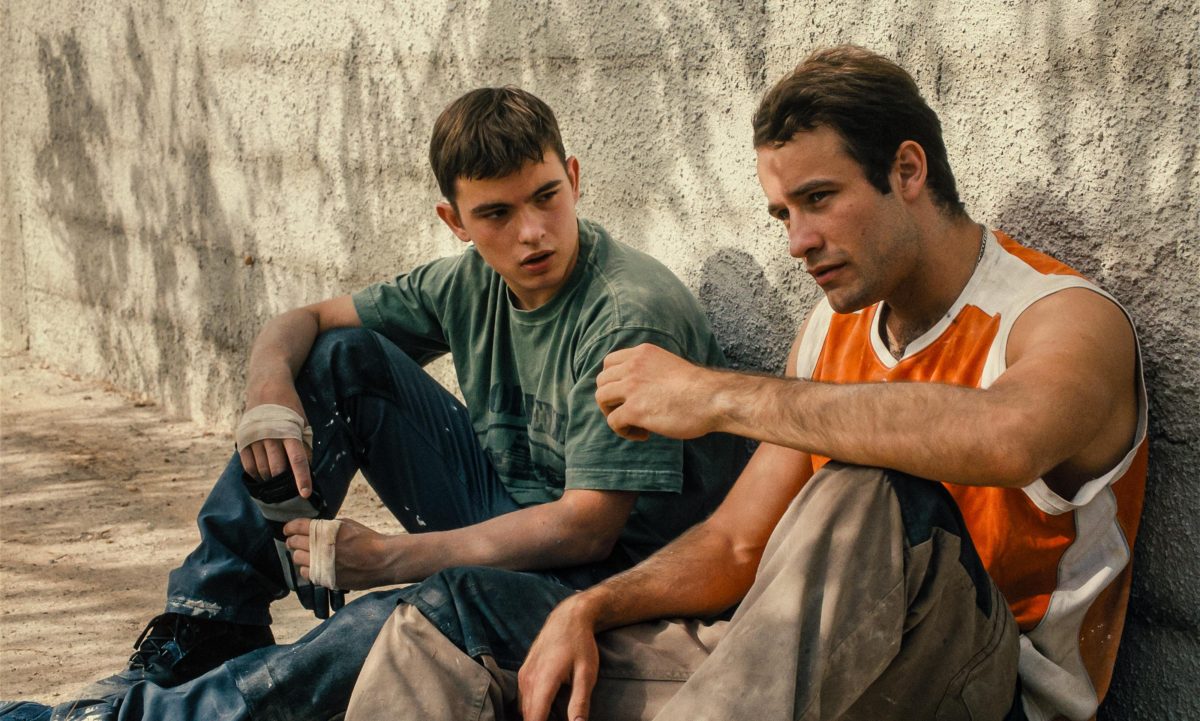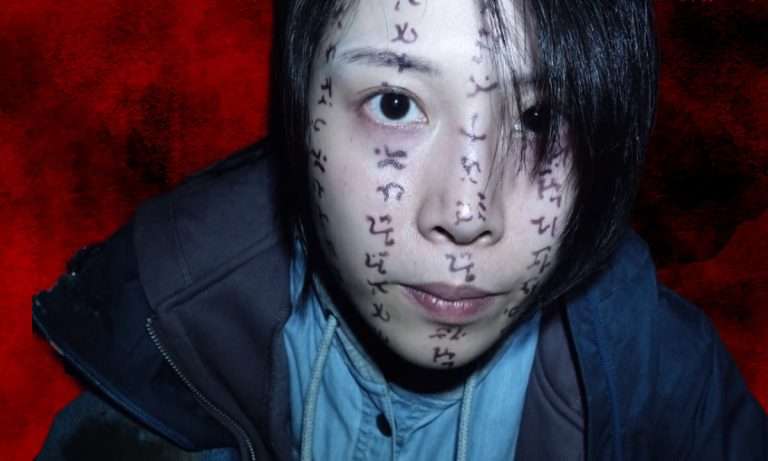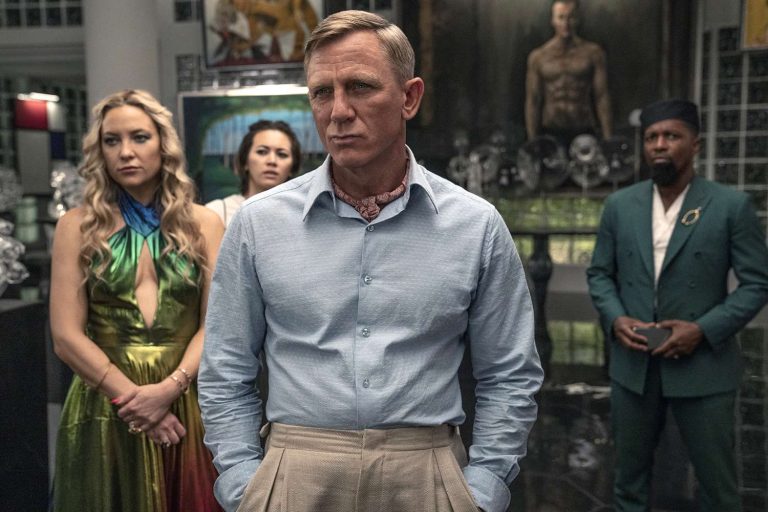Nobody knows who they are at 16. It is an age of confusion, with your body and mind going through seismic changes, while everyone around you demands answers about what you want to do with your life. Add in questions about your sexuality, and you have the perfect storm for angst, anger, and mistakes.
This is where we meet Enzo (Eloy Pohu). Fresh out of high school, he has decided that he wants to be a bricklayer, despite his parents, Paolo (Pierfrancesco Favino) and Marion (Élodie Bouchez), being wealthy bourgeois individuals. They placate Enzo by letting him take this bricklaying apprenticeship, believing that he will grow out of it once he realizes that the work is strenuous and return to art, a more “suitable” career in which he has tremendous skill.
His brother Victor (Nathan Japy) is the golden child, a model student bound for a top university, which only drives Enzo to rebel harder. Whilst on the site, Enzo falls into a friendship with two young Ukrainian men, Vlad (Maksym Slivinskyi) and Miroslav (Vladislav Holyk). A night out with them sparks an attraction to Vlad that confuses Enzo further, while Miroslav pressures Vlad to return home and fight in the war, something Vlad vehemently resists.
“Enzo” (2025) was initially scheduled to be directed by co-writer Laurent Cantet, Palme d’Or-winning director of “The Class”, until his untimely death from cancer at the age of 63. As a result, co-writer Robin Campillo, director of the critically acclaimed “BPM (“Beats Per Minute”), stepped up to the director’s chair and finished the film for his friend.
In a rare gesture, the credits read “a film by” Cantet, separate from Campillo, who admitted that the film feels more like Cantet’s vision than his own. Maybe as a result of this directorial switch, the film feels deeply muddled, almost as confused as a 16-year-old might be. It’s unclear if it wants to be a story about class divide, sexual awakening, or duty to one’s country during wartime. In trying to do all three, it spreads itself too thin.
The idea of a rich kid on a building site just because he wants to do the opposite of what his parents want is a strong premise. There is a scene towards the beginning where his boss takes Enzo home, ready to tell his parents that he’s going to fire him for doing a poor job. Upon seeing that Enzo has a gorgeous house with a pool and a sea view, the boss rolls over and tells the parents he thinks Enzo should do something else, but is happy to let him continue.
Even on a building site, wealth creates an imbalance—someone rich can get away with petulant behaviour and poor workmanship without fear of being fired. There’s a severe juxtaposition between Enzo’s gorgeous house and Vlad & Miroslav’s dingy apartment. If the film had concentrated on this aspect and delved more into the class divide between workers, the story would have been stronger for it.

The character of Enzo can be utterly infuriating, almost to the point where your suspension of disbelief that someone could be this foolish is pushed to the limit. Enzo wants to suffer; he has lived a comfortable, affluent life, and now, for some reason only known to him, he is desperate to suffer. He decides to be a bricklayer, despite having no skills in this field, simply because he wants to work with his hands.
After learning that Vlad and Miroslav are Ukrainian, he begins researching the war and persistently asks Vlad why he should go, even declaring at one point that he wants to join as well. It’s self-sabotage to the extreme, which rears its head with a ridiculous climax at a family party where more lies are said, before everything is finally torn down.
If Pohu had had more range, this character could have been an authentic and accurate portrayal of adolescence, but unfortunately, he comes across as petulant and bratty for the majority of the film. Slivinskyi proves more effective as an understanding and supportive presence for Enzo, though the writing limits him to little beyond that role.
Favino and Bouchez brilliantly play parents to the self-righteous child, but Enzo seems to do the opposite of whatever their characters want, pushing the parents to the very limit. Their performances are strong, but it’s another case of the writing not being there for them to elevate their characters beyond either “super chilled” or “intensely frustrated”.
Visually, the film is far more confident. The French Riviera setting provides natural splendour, with ocean vistas, night skies, and stretches of wilderness that Enzo roams on his moped. Campillo wisely lets the location speak for itself rather than overwhelm it with style. The sound of the cicadas is also effectively peppered throughout the film, creating a suffocating wall of noise that only adds to the feeling of unease.
“Enzo” has bucket-loads of potential. With a more refined script, we could have had an LGBTQ film that reaches the heights of “BPM” (“Beats Per Minute”) or a film focused on economic class disparity that is as compelling as “The Class”. Instead, we have a mish-mash of both themes, and the Ukrainian war thrown in for topicality, leaving a film that feels as lost and confused as its protagonist.



![Kakbagodaa [2019] Review: Another Aware Film based on the Perception of Privilege](https://79468c92.delivery.rocketcdn.me/wp-content/uploads/2020/01/C0120T01-768x432.jpg)

![Toni Erdmann [2016] : False Teeth and Real Emotions](https://79468c92.delivery.rocketcdn.me/wp-content/uploads/2016/12/maxresdefault-3-768x416.jpg)
![Sindhubaadh [2019] Review: An Aspiring Ingenious Quest](https://79468c92.delivery.rocketcdn.me/wp-content/uploads/2019/06/Sindhubaadh-Review-Featured-768x432.jpg)

![This is not a War Story [2021] Review: A devastating yet knobbly look at PTSD](https://79468c92.delivery.rocketcdn.me/wp-content/uploads/2021/03/This-is-not-a-war-story-1-highonfilms-768x432.jpg)